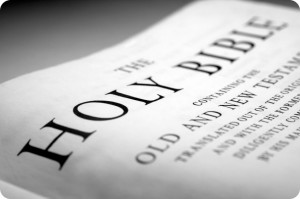 Renown evolutionary biologist Richard Dawkins wrote: “It is absolutely safe to say that if you meet someone who claims not to believe in evolution, that person is ignorant, stupid or insane (or wicked, but I’d rather not consider that).†Dawkins offers his naysayers four wonderful options–ignorant, stupid, insane, or wicked! Although brash, his statement reflects the dominant position of science and Western culture on the history of human origins–evolution through natural selection. To hold any other position, particularly if you are a Christian, is to be considered arcane and ignorant. Should Christians embrace evolutionary theory as an explanation for human origins? Can it be squared with the biblical accounts in Genesis? I will succinctly present both a conservative and progressive view. Then, offer a view that reconciles evolution and Christianity but rejects naturalism with Christian faith.
Renown evolutionary biologist Richard Dawkins wrote: “It is absolutely safe to say that if you meet someone who claims not to believe in evolution, that person is ignorant, stupid or insane (or wicked, but I’d rather not consider that).†Dawkins offers his naysayers four wonderful options–ignorant, stupid, insane, or wicked! Although brash, his statement reflects the dominant position of science and Western culture on the history of human origins–evolution through natural selection. To hold any other position, particularly if you are a Christian, is to be considered arcane and ignorant. Should Christians embrace evolutionary theory as an explanation for human origins? Can it be squared with the biblical accounts in Genesis? I will succinctly present both a conservative and progressive view. Then, offer a view that reconciles evolution and Christianity but rejects naturalism with Christian faith.
Young Earth, Anti-EvolutionÂ
Conservatives argue that we should deny evolution because the science doesn’t fit with a literal interpretation of the Bible. They point out that the earth can’t be billions of years old since the Bible says the world was made in six days (read 24 hour periods) and that the biblical the genealogies put the earth at 6-10 thousand years old. They protest that there is not enough archeological or geological evidence to support an old earth. As for evolution, they protest the scarcity of transitional life forms in the fossil record. Despite recent advances in genetics, which claim to have found “genetic fossils” in the shared junk DNA of higher organisms which point back to a common ancestor, conservatives are quick to point out that this theory has been overturned and that what was once considered “junk” is actually active in coding for proteins. Should Christians embrace evolution? In the words of Norman Nevin, Professor of Medical Genetics and editor of Should Christians Embrace Evolution: “Our answer is an unequivocal ‘no’!”
Old Earth, Pro-Evolution
Many noted evangelical leaders and scholars do not exclusively accept the old earth theory. Both the day-age (day does not equal 24 hours) and the Framework hypothesis provide alternative readings of Genesis 1 that permit an old age view. We should point out that some evolution is undeniable. Some have used the term “microevolution” to describe mutation within species, which is a documented fact. However, Francis Collins, leader of the Human Genome Project and author of The Language of Science and Faith, points out that the distinction between micro and macro evolution is arbitrary. All evolutionary activity is micro, small, and stretched out over vast stretches of time. Consider the evolution of the Ford Model T to the Toyota Prius hybrid. Henry Ford could have never imagined his vehicle could evolve into something as advanced as a Prius, and yet, it did.
Francis Collins avers that genetic research has proven the theory of evolution. He compares the genome to a genetic fossil, which can trace the mutations in human DNA proving evolution. He points out that our DNA and the DNA of other vertebrates is so similar that we have to have come from a common ancestor. It’s not just that we look alike; it’s that our DNA is alike. As for the claim that new genetic studies refute this claim, Collins points out that unlike most mammals, primates and humans require a dietary source of vitamin C. The reason for this is a broken gene. He argues that the shared genetic makeup is due to our common ancestry (the alternative is that God gave us broken DNA). When asked how compelling the evidence is, Collins a Christian, replied: “The evidence is overwhelming. And it is becoming more and more robust down to the details almost by the day.â€
Evolution-Yes; Naturalism-No
If evolution is true, where does that leave us? Are we to conclude that we have a generally meaningless existence? Reflecting on the implications of evolution, cognitive scientist and philosopher, Daniel Dennett, author of Darwin’s Dangerous Idea, writes: “An impersonal, unreflective, robotic, mindless little scrap of molecular machinery is the ultimate basis of all the agency, and hence meaning, and hence consciousness, in the universe.†In other words, Dennett asserts that evolution has nothing to do with a personal God and divine meaning. Dennett is a naturalist. Naturalism infers that our ability to love, act, think, form beliefs, use language, have moral convictions, put faith in God, and do art and philosophy—all originates in random genetic mutation not in universals ideals that have meaning.
This is a worldview that has staggering implications. It is a step away from science into a kind of scientific religion. It is one thing to affirm evolution as a biological process, but it is quite another to make it into a life philosophy. Religion philosopher, Alvin Plantinga, argues for evolution and against naturalism in his dense but insightful book Where the Conflict Really Lies. He asserts that divinely guided evolution, not unguided, random mutation, is what is at work in the evolution of humanity. Plantinga points out that the precise number and kind of mutations to occur from an unthinking, single cell organism to the complexity of a thinking human being is highly improbable. Therefore, there had to be divine guidance in the process. He unites evolutionary biology with divine purpose. To not affirm divine guidance and purpose in evolution is to render all our activities meaningless, fit only for survival. Human mothering, music writing, service to others, sense of connection in marriage and relationships—all meaningless. Naturalism begins to address religious questions like why we exist. There is an awful risk in taking the leap from biological evolution to naturalism because it provides no real basis for morality, for justice, for relationships, and for religion; we simply do those things to perpetuate the human race.
Now, there is a fatal flaw to the naturalist worldview. It asserts that even our thoughts, our religion and philosophy, are simply constructs created to help us survive. They have no true meaning. The flaw in this line of thinking is that if our thoughts are meaningless and a product of survival, who is to say that any of them are correct? Who’s to say that the evolutionary atheists are right? Who’s to say that we can trust any of this naturalist philosophy? Darwin himself had this fear: With me the horrid doubt always arises whether the convictions of man’s mind, which has been developed from the mind of the lower animals, are of any value or at all trustworthy. Would any one trust in the convictions of a monkey’s mind, if there are any convictions in such a mind?†Darwin himself doubted the implications of naturalism. Naturalism defeats itself; it is not reliable. If naturalism makes it impossible to trust our minds, then it also makes it impossible to trust naturalism! When evolution answers religious questions it reduces us to a collection of purposeless enzymes and cells. Christianity, even with evolution, offers a richer, more meaningful and philosophically coherent life and worldview, anchored in genuine truth, beauty, and virtue.
For Further Study (easy to hard):
Adam & Eve
 The popularity of missional community is rising among evangelicals, and yet, the American church is nowhere near a missional tipping point. How can we lead the church well, and endure, in and through the mission?
The popularity of missional community is rising among evangelicals, and yet, the American church is nowhere near a missional tipping point. How can we lead the church well, and endure, in and through the mission?
 Renown evolutionary biologist Richard Dawkins wrote: “It is absolutely safe to say that if you meet someone who claims not to believe in evolution, that person is ignorant, stupid or insane (or wicked, but I’d rather not consider that).†Dawkins offers his naysayers four wonderful options–ignorant, stupid, insane, or wicked! Although brash, his statement reflects the dominant position of science and Western culture on the history of human origins–evolution through natural selection. To hold any other position, particularly if you are a Christian, is to be considered arcane and ignorant. Should Christians embrace evolutionary theory as an explanation for human origins? Can it be squared with the biblical accounts in Genesis? I will succinctly present both a conservative and progressive view. Then, offer a view that reconciles evolution and Christianity but rejects naturalism with Christian faith.
Renown evolutionary biologist Richard Dawkins wrote: “It is absolutely safe to say that if you meet someone who claims not to believe in evolution, that person is ignorant, stupid or insane (or wicked, but I’d rather not consider that).†Dawkins offers his naysayers four wonderful options–ignorant, stupid, insane, or wicked! Although brash, his statement reflects the dominant position of science and Western culture on the history of human origins–evolution through natural selection. To hold any other position, particularly if you are a Christian, is to be considered arcane and ignorant. Should Christians embrace evolutionary theory as an explanation for human origins? Can it be squared with the biblical accounts in Genesis? I will succinctly present both a conservative and progressive view. Then, offer a view that reconciles evolution and Christianity but rejects naturalism with Christian faith. Most people question the reliability of the Bible. You’ve probably been in a conversation with a friend or met someone in a coffeeshop who said: “How can you be a Christian when the Bible has so many errors?” How should we respond? What do you say?
Most people question the reliability of the Bible. You’ve probably been in a conversation with a friend or met someone in a coffeeshop who said: “How can you be a Christian when the Bible has so many errors?” How should we respond? What do you say?